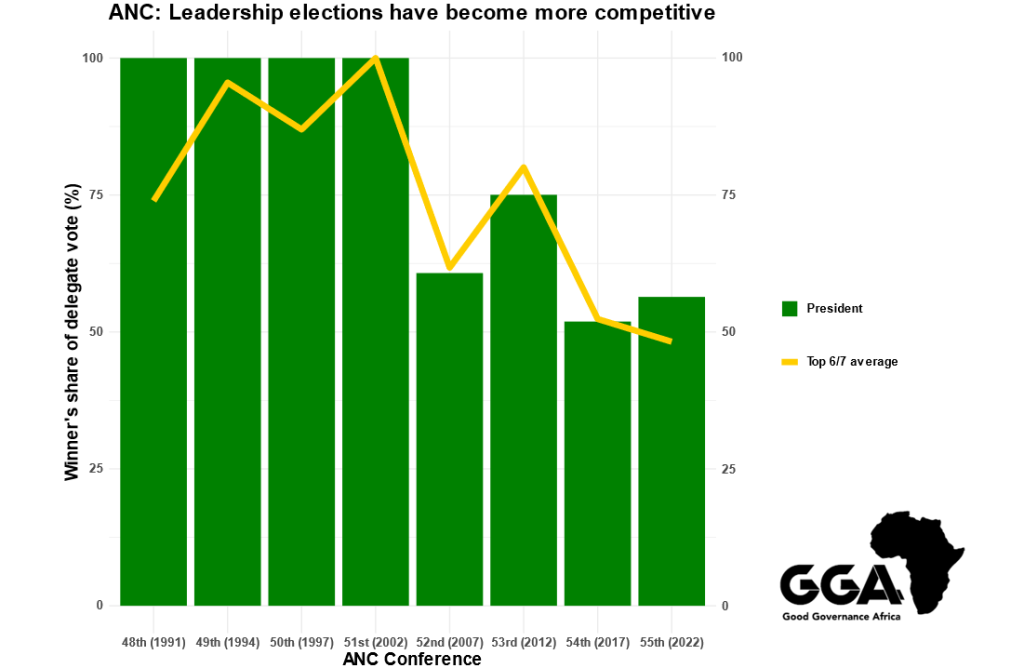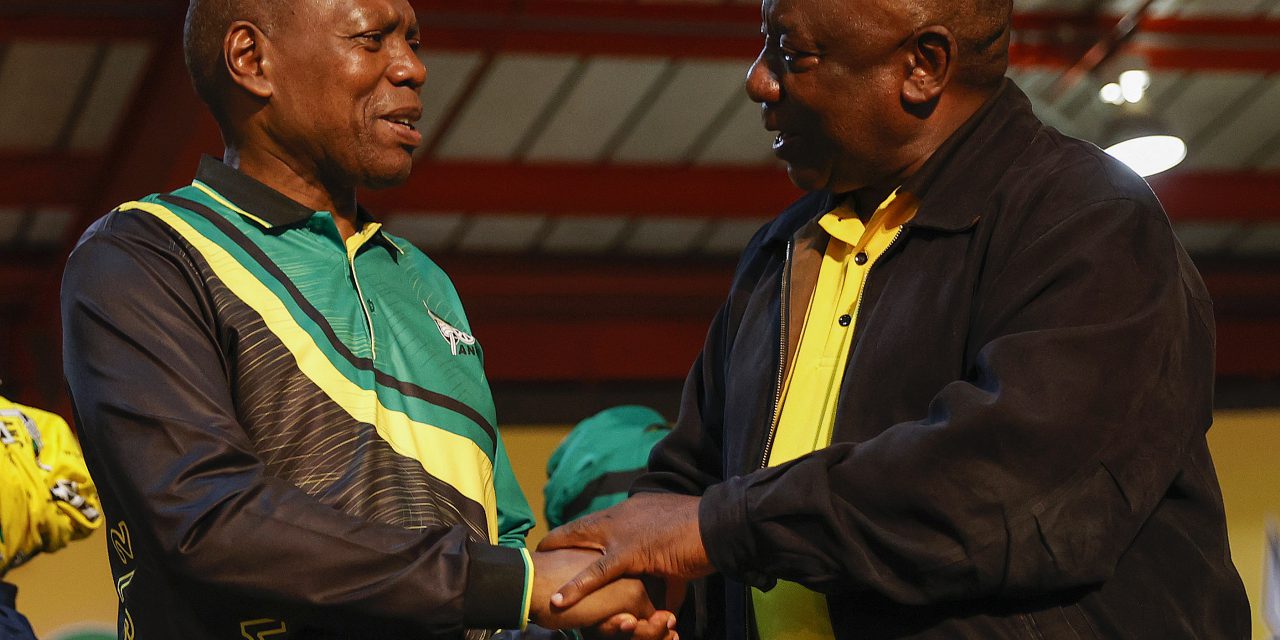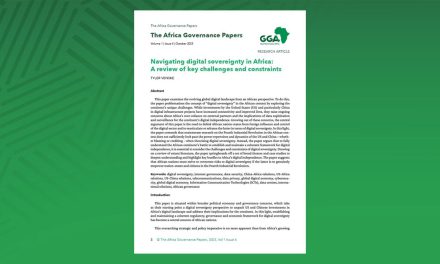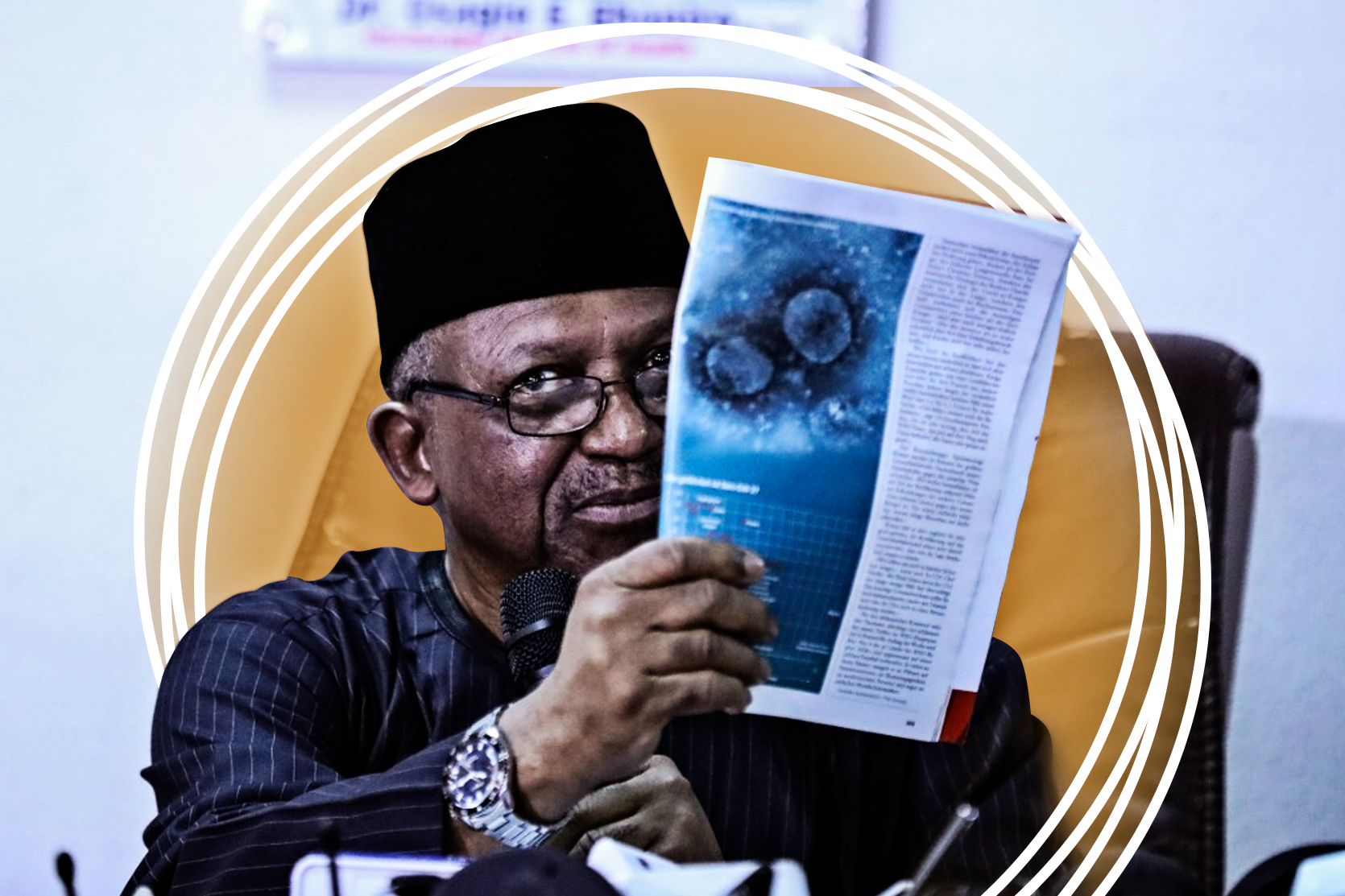Former South African Health Minister Zweli Mkhize (L) congratulates South African President and re-elected leader of the African National Congress (ANC) Cyril Ramaphosa during the 55th National Conference of the ANC in Johannesburg on December 19, 2022. (Photo by PHILL MAGAKOE / AFP)
Good Governance Africa congratulates the newly elected top seven of South Africa’s ruling party, the African National Congress (ANC) led by President Cyril Ramaphosa.
The conference was notable for the creation of a second deputy secretary general position. This is expected to help the ANC better address its many administrative, governance and political challenges. Another welcome development was the election of three women into the party’s executive, following decades of underrepresentation.
At the same time, the conference’s proceedings highlighted divisions within the ANC – divisions that have clearly widened over the past two decades. At this week’s conference, only three members among the new top seven received at least half of the total delegate vote share.

There is a strong temptation to view these divisions as symptomatic of a more inward-looking organisation.
However, South Africa can ill-afford such insularity. The party’s newly elected leadership assumes office at a time when South Africa is riddled with governance issues. Now at the head of the country’s long-standing ruling party, the new leadership has a responsibility to contend with these issues.
Our conference preview emphasised some of these key challenges. These included the energy crisis, corruption and growing political instability. Given the party’s influence on national policy frameworks, it is imperative that the ANC is decisive in adopting an approach which prioritises effective governance.
On the eve of this conference, Eskom CEO, André de Ruyter, served his resignation notice, reportedly due to a lack of political support. His resignation serves to remind the South African public of the importance of sustained political will within the governance process. It also provides the ANC’s new leadership with an opportunity to break with the past by demonstrating its intent to resolve the energy crisis.
Equally important is South Africa’s political future. In recent years, electoral support for the ANC has eroded at an increasingly rapid rate. One outcome from this is the emergence of unstable coalition governments, especially at the municipal level.
Ahead of the 2024 elections, it is entirely possible that such coalition arrangements will emerge at the national level. Our conference preview was urgent in calling on the ANC and other political parties to develop a clear plan to ensure stable coalitions, a vital focus at this transitionary stage in South Africa’s democratic history.
Good Governance Africa re-iterates that this is no time for complacency. Rather, it is the time for pragmatic and action-orientated governance, which strives to benefit all South Africans. The ruling party’s newly elected leaders have an opportunity, and indeed a responsibility, to provide much needed direction.







